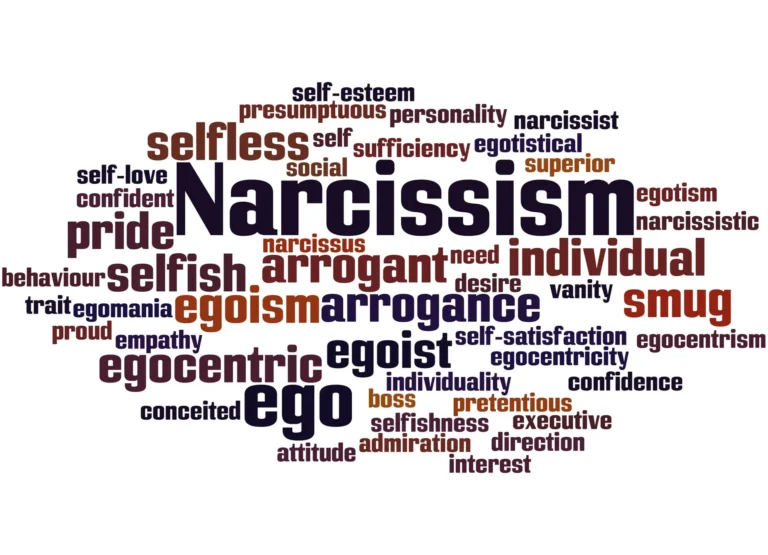8 Ways to Tackle Depression: Finding Hope and Healing in Tampa
In the journey through life, depression often emerges as an unwelcome companion, casting a shadow over the simplest joys and daily routines. It’s a condition that demands attention, understanding, and a multifaceted approach to healing. Recognizing the profound impact depression can have on every aspect of life, it’s crucial to arm ourselves with a variety of strategies to navigate through its challenges.
This blog post aims to illuminate a path towards hope and recovery, especially for those in the Tampa area and beyond, seeking solace and solutions at McNulty Counseling and Wellness. We will delve into 8 ways to tackle depression, from nurturing a supportive network to embracing the therapeutic power of creativity. Each strategy is a step towards reclaiming the light dimmed by depression, crafted with care to offer guidance, insight, and the promise of a brighter tomorrow. Whether you’re battling depression firsthand or supporting a loved one on their journey, this guide is designed to equip you with the tools and understanding needed to face depression head-on and emerge resilient.

1. Building a Strong Support Network
Creating a robust support network is crucial in the fight against depression, providing much-needed emotional comfort, understanding, and a sense of belonging. Initiating conversations with friends and family about your experiences and feelings can significantly lighten the emotional load of depression, offering immediate relief and a feeling of connection. Additionally, community support groups play a vital role, as they bring together individuals dealing with similar challenges, facilitating a shared space for empathy, understanding, and the exchange of coping mechanisms.
This camaraderie is instrumental in diminishing feelings of isolation. Moreover, professional assistance is essential. Licensed therapists, like those at McNulty Counseling, deliver tailored care that addresses each person’s unique needs, offering a confidential space to navigate emotions, uncover the roots of depression, and build effective coping strategies. This combination of personal and professional support is fundamental in tackling the complexities of depression and steering towards recovery and well-being, encapsulating a holistic approach to mental health care.
2. Adopting a Healthy Lifestyle
Adopting a healthy lifestyle is pivotal in managing and potentially alleviating depression symptoms, underscoring the profound link between physical and mental well-being. Engaging in regular physical activity, such as walking or yoga, is essential as it releases endorphins, brain chemicals that act as natural mood enhancers, thus helping to ease depression symptoms and foster a sense of well-being. Nutrition also plays a critical role in mental health; a balanced diet rich in fruits, vegetables, lean proteins, and whole grains provides essential nutrients that support brain health and mood stability.
Conversely, a diet filled with processed foods and sugars can deepen feelings of lethargy and sadness. Sleep quality cannot be overlooked; adequate rest, around 7-9 hours per night, is crucial for cognitive function and emotional regulation. Poor sleep patterns can exacerbate the symptoms of depression, making quality sleep a key component of a holistic approach to mental health. Together, exercise, nutrition, and good sleep form a foundational triad that supports mental health and aids in managing depression.
3. Engaging in Therapy
Engaging in therapy represents a pivotal move in managing depression, offering a secure environment for individuals to dissect and comprehend their emotions, thoughts, and actions. Cognitive Behavioral Therapy (CBT) is notably effective, targeting and modifying negative thought patterns and behaviors that fuel depressive symptoms, equipping people with actionable strategies for mood enhancement and a positive life perspective. Additionally, psychodynamic therapy dives into an individual’s past, addressing unresolved issues that shape current feelings and behaviors, facilitating deep healing from depression’s roots.
Group therapy introduces a communal aspect, where sharing experiences and coping mechanisms within a supportive group diminishes feelings of isolation, boosting the sense of belonging and mutual support crucial for recovery. These therapeutic approaches collectively form an integrated strategy for tackling depression, designed to accommodate the varied requirements and recovery paths of those in pursuit of healing, rounding out a comprehensive and tailored approach to overcoming depression.
4. Practicing Mindfulness and Relaxation Techniques
Practicing mindfulness and relaxation techniqes is a powerful strategy for managing depression, helping anchor the mind in the present and reduce stress and anxiety. Key practices like meditation, deep breathing exercises, and yoga significantly contribute to calmness, mindfulness, and overall well-being. Meditation allows individuals to concentrate their attention in a manner that fosters relaxation and mental clarity, teaching them to observe thoughts and feelings non-judgmentally, thus enhancing peace and reducing negative thought patterns.
Deep breathing exercises offer a simple, yet highly effective way to alleviate stress and anxiety by slowing and deepening breaths, activating the body’s relaxation response to counteract the heightened stress response common in depression. Yoga combines physical postures, controlled breathing, and meditation to holistically improve mental and physical health, releasing tension, boosting endorphins to improve mood, and fostering mental tranquility and mindfulness. These practices together equip individuals with practical tools to bolster their mental health and combat depression.

5. Setting Realistic Goals and Celebrating Progress
Implementing realistic goals and acknowledging every bit of progress are critical strategies in fighting depression. By dividing larger objectives into smaller, manageable actions, individuals can circumvent feelings of being overwhelmed, thereby facilitating more frequent experiences of success. This method turns seemingly insurmountable tasks into achievable ones, enhancing the ability to handle daily challenges and diminish the stagnation frequently associated with depression. Celebrating each small victory is crucial; it validates efforts and advancements, no matter how trivial they may appear. Such recognition significantly elevates self-esteem and motivation, which are vital in combating depression.
Furthermore, maintaining a progress journal provides a concrete record of successes and hurdles surmounted, offering a space for reflection and encouragement in times of doubt or pause. Writing down thoughts and achievements acts as a therapeutic activity, aiding in emotional processing and thought organization. Collectively, these practices foster a positive outlook and resilience, indispensable for overcoming depression’s challenges.
6. Limiting Alcohol and Avoiding Drugs
For those grappling with depression, reducing alcohol consumption and avoiding drugs are critical steps, as these substances can exacerbate the condition. Alcohol and drugs disrupt brain chemistry, affecting neurotransmitters essential for mood regulation, and can worsen depression symptoms. This creates a detrimental cycle where substances provide short-term relief but lead to long-term deepening of depression. Recognizing the impact of these substances is the first step towards recovery and making healthier lifestyle choices.
Seeking professional support is crucial for individuals concerned about their substance use. Therapists, counselors, and addiction specialists can offer targeted strategies for managing and overcoming dependency, tailored to individual needs. This might include a combination of therapy, medication, and participation in support groups. Initiating the search for help and addressing substance use head-on are significant strides on the path to recovery from depression. This professional aid not only focuses on substance use but also explores underlying issues contributing to depression and addiction, ensuring a comprehensive approach to healing.
7. Exploring Medication Options
Exploring medication options is crucial for many dealing with depression, with the first step being a consultation with a healthcare provider, preferably a psychiatrist. Psychiatrists, with their expertise in mental health conditions, provide tailored advice on medication options, considering the individual’s symptoms, medical history, and personal situation. Their guidance is invaluable in understanding the complex world of antidepressants, each with its own benefits and potential side effects.
Understanding the pros and cons of prescribed medications is key to setting realistic expectations and achieving the best treatment outcomes. While antidepressants can offer significant relief for many, they may also introduce side effects that need managing. Maintaining open communication with your healthcare provider allows for adjustments based on side effects, ensuring the treatment aligns with patient needs. Medication, when combined with therapy and lifestyle changes, forms a holistic treatment approach, addressing all facets of depression. This comprehensive strategy, integrating medication with other treatments, is often the most effective path to recovery, enhancing overall well-being and promoting long-term mental health stability.
8. Engaging in Creative Outlets
Engaging in creative outlets provides a therapeutic avenue for those dealing with depression, as art, music, and writing offer more than just ways to communicate—they’re powerful tools for emotional release. These creative activities enable the expression of feelings that might be hard to verbalize, offering relief and a mechanism to cope with stress and anxiety. The immersive experience of creating can induce a state of flow, pausing time and concerns, thereby uplifting mood and well-being.
Beyond traditional arts, any hobby that brings joy, such as gardening, cooking, or photography, proves beneficial. These pursuits break daily monotony, add structure, and open up learning and achievement opportunities. The active engagement and concentration these hobbies require can serve as a natural mood booster, enhancing mental health. Thus, incorporating creative expression and personal interests into daily life forms a crucial part of a holistic strategy for managing depression, aiding in the journey towards recovery and improved life quality.
Conclusion
Tackling depression requires a multifaceted approach, embracing both professional interventions and personal strategies to foster healing and well-being. By building a strong support network, adopting a healthy lifestyle, engaging in therapy, practicing mindfulness, setting realistic goals, limiting alcohol and drug use, exploring medication options, and engaging in creative outlets, individuals can find a comprehensive pathway out of the shadows of depression. Each of these strategies offers unique benefits, contributing to a holistic treatment plan that addresses the various dimensions of depression. It’s important to remember that the journey toward recovery is personal and progressive, with each step forward marking significant progress.
At McNulty Counseling and Wellness, we are dedicated to supporting you through this journey, offering professional guidance and compassionate care tailored to your unique needs. If you or someone you know is struggling with depression, we encourage you to reach out. Together, we can navigate the path to healing and rediscover the joy and fulfillment that life has to offer.
Contact Us
If you or someone you know is struggling with grief, don’t hesitate to reach out to McNulty Counseling and Wellness. Our team is ready to provide the support and guidance you need to navigate this difficult time. Visit our website at mcnultycounseling.com/ to learn more about our services and how we can help you start your healing journey today. You can call or text us at 727-344-9867 or email us at Admin@McNultyCW.com.







